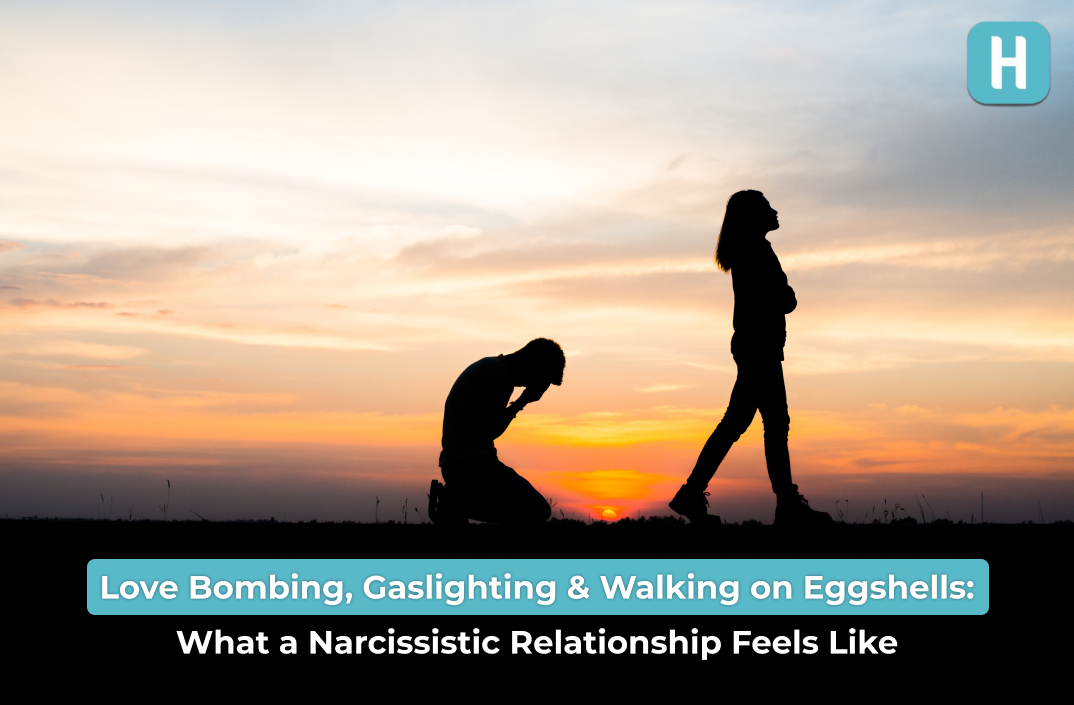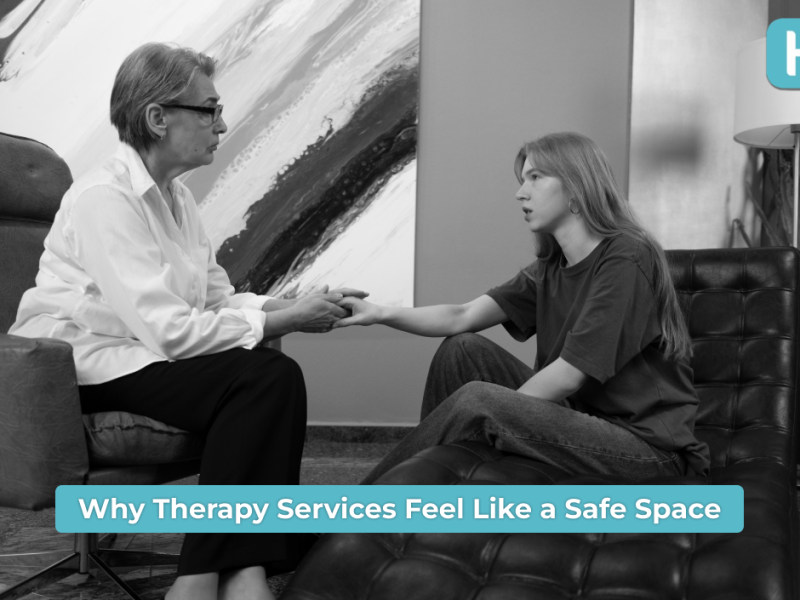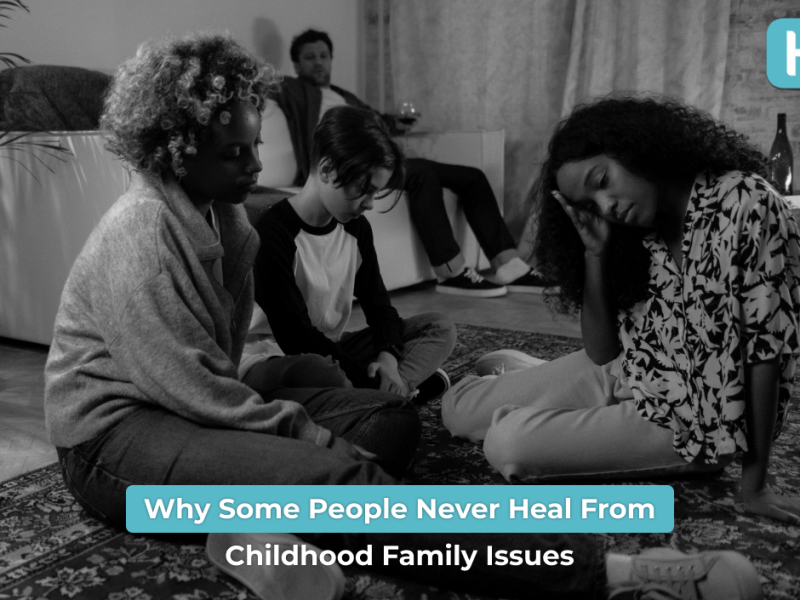Have you felt that you are walking on eggshells with your partner? Guessing their next move or doubting your own memories or feelings? If this sounds like you, you are likely in a narcissistic relationship. Confusion and fatigue are hallmarks of such circumstances, where love seems to morph into pain, like being tossed about in a cyclone.
It’s the kind where you give and give, but end up feeling small, lost, and exhausted. The kind that messes with your head—one moment they love you, the next you’re the problem. In this article, I want to help you make sense of that. We’ll talk about things like fake affection, mind games, and always feeling on edge. And most importantly, how to protect yourself—because love should feel like peace, not fear.
What is a narcissistic relationship anyway?
It’s mainly when an individual focuses on a personal world. That individual wants to be in control all the time, wants all the attention, and always wants to be right-even if it hurts you. Instead of falling into the scenario of equals, you go about trying to keep happy that person, avoid anger, or prove that you’re good enough. Such situations may leave one feeling invisible and lost and confuse them about their rightful state.
Well, walking on eggshells could qualify as an apt description; everything said and done has to be so careful because one never knows what will upset his or her partner. You find yourself walking on tiptoes to avoid a fight or disappointing him.
Of course, love bombing.
At first, it felt wonderful-it was all compliments, assurances, and promises from your partner. You feel like you are the only person in the world. But that is the biggest chance of all-not true love at all. It is meant to hook the other person emotionally before the real trouble starts.
Did you know that studies show nearly 70% of people in abusive relationships went through love bombing first? It’s a trap — making you feel close and special so you won’t see the red flags waving right in front of you.

What Is Gaslighting? When Your Reality Gets Twisted
Gaslighting is one of the cruelest parts of a narcissistic relationship. It’s when your partner makes you doubt what you know is true.
They might say things like:
- “You’re imagining things.”
- “That never happened.”
- “The fact is you’re too sensitive.”
Doubt about one’s own memories and feelings creeps in slowly. You feel lost and confused. It’s almost mad, you know! Gaslighting is an old term taken from a movie where the husband changes the gas lights, keeping the wife disoriented and insisting that nothing he did ever happened.
Walking on Eggshells: The Fear That Controls You
So, what does walking on eggshells mean?-The feeling that you are forever trying to do anything to irritate your partner. You choose your words carefully, avoid certain topics, and attempt to predict the moods of your partner. It’s exhausting, and makes you feel unsafe in your very own relationship family. You might also not be able to express your feelings for fear of triggering anger or disappointment.
Dealing with a Narcissist: Protecting Yourself
When it comes to handling a narcissist: You cannot change them. You can only learn to protect yourself.
Do this:
Learn about narcissism. Understanding what they do helps you to stop blaming yourself.
Set boundaries: Specify what you will and will not accept.
Get support: Talk to friends, family, or a counselor who understands narcissistic abuse.
Detox for yourself: Take some quality time for your healing and replenishing.
Plan for safety: If the relationship feels abusive, make a safe exit plan.
Remember, it’s about keeping your heart and mind safe.
Can a Narcissist Change? The Hard Truth
Many people wonder, “Can a narcissist change?”
The honest answer is: It’s very difficult. Narcissistic behaviors come from deep patterns in how they think and feel about themselves and others. Changing those patterns takes a lot of work — therapy, self-awareness, and real motivation. The usual narcissist does not change; that person never sees anything wrong with him-or-herself. Therefore, your concern should be on your healing and growth instead of trying to change them.
What does a narcissistic relationship feel like?
It feels like riding an emotional roller coaster: Suddenly, you are the center of their lives while you bask in your resourcefulness. The next moment, you feel critiqued, ignored, or just rendered to feel like nothing lasts..
Your feelings swing wildly between hope and pain. You might feel:
- Confused about what’s real.
- Afraid to trust your own feelings.
- Lonely even when you’re with them.
- Drained, anxious, or depressed.
This emotional chaos is designed to keep you off-balance — so you keep trying harder to win their love.
Cycle of Narcissistic Abuse
It often unfolds as a painful cycle in narcissistic relationships:
Love bombing ensues with an avalanche of affection and attention. Then, suddenly, devaluation takes place with criticism, invalidation, and blame. Finally, discard: rejection and sometimes punishment, even if with the intention of coming back, when the cycle starts over again. Awareness of this pattern helps you recognize the sequence of events and gives you powerful tools in seeing that you are not at fault.
Why Early Intervention Matters
When you recognize a narcissistic relationship, you can safeguard your emotional health. It’s easy to get carried away with the love bomb stage or with regards to gaslighting, to think the situation is just a misunderstanding. But every week you stay is another week of damage done to your self-esteem and self-worth. When you identify the situation quickly, it enables you to make the healthiest choice for yourself.
How To Start Healing
Recovery from a relationship with a narcissist is much more difficult but doable.
In the beginning, you:
- Believe that your feelings are real and true.
- Talk to people who are supportive and understand what you’re going through.
- Take care of yourself in every way – physically, emotionally, and psychologically.
Learning about healthy relationship behaviors. Seeking therapy if possible to work through trauma and rebuild self-esteem. Healing is a journey — but every step forward is a step toward freedom.
Final Thoughts: You Deserve Healthy Love
It is wrong that anyone should live in fear, doubt, or even confusion. Narcissistic relationships are painful, but they’re not your fault; nor are they your destiny. You deserve love that lifts you up, respects you, and feels safe. Recognize these signs in your relationship; practice self-care and seek help. You’re stronger than you know.
Why Are Narcissistic Relationships So Draining?
Life with a narcissist is like never-ending roller-coaster riding. One day is soft, warm, and beautiful and makes you feel like the most loved creature on earth. And then wakes you out of that dream-like state by leaving you to question absolutely everything you thought you knew-whether or not you are worth anything at all, what you’re feeling, and even your sanity.
Those constant ups and downs bring in very easy, serious, emotional exhaustion. You may find yourself:
- Always anxious at the prospect of the next outburst or the proverbial cold shoulder.
- Continually doubting your own memories or feelings because your partner insists things happened differently.
- Worst of all, unable to articulate or struggle to when the partner is present due to the fear of provocation and fight or withdrawal.
- No longer having contact with friends and family due to the overwhelming concern with trying to manage your partner’s moods.
It’s that real, and many people find narcissistic relationships make them feel trapped, isolated, and powerless.
Here’s Why Love Bombing Works-the Science Behind Why It Feels So Good at First.
Love bombers unleash their torrents of love, attention, gifts, and promises on you-a real fairy-tale come true! Here you are, swept off your feet again, perhaps the first time in a long time. But here is the catch: loveّم
Why?
Because once you feel deeply connected and special, you start to lower your guard. You ignore red flags. You tolerate behaviors that don’t feel right. You want to believe the best in them — because you want that early warmth to last. But the love bombing phase always ends. The narcissist’s true nature begins to show. And that’s when the confusion, the gaslighting, and the emotional turmoil start.
How Your Reality Gets Twisted?
Gaslighting is a slow, cruel form of emotional abuse where the narcissist makes you doubt yourself. It might start with small things, like denying a conversation you clearly remember, or blaming you for their bad mood. Over time, this pattern chips away at your confidence.
You might find yourself thinking:
- “Am I really overreacting?”
- “Maybe I’m just too sensitive.”
- “I must be remembering things wrong.”
This self-doubt is exactly what the narcissist wants. When you question your own feelings, you become easier to control. Remember: If your partner constantly makes you feel confused or crazy, it’s not your fault — that’s gaslighting.
Walking on Eggshells: The Never-Ending Fear of Triggering Conflict
When you’re always walking on eggshells, you’re hyper-aware of everything you say or do. You might catch yourself:
Avoiding topics that make them upset.Changing your behavior to keep the peace. Constantly apologizing for everything, even when you have done nothing wrong. This fear prevents one from being oneself and expressing one’s feelings. It is an energy drain and may leave one with chronic stress and anxiety.
Why It Is So Hard to Set Boundaries — But Why It Is Crucial
One of the biggest challenges in a narcissistic relationship is the boundary setting. You wish you could say:
- “Don’t talk to me like that.”
- “I need some space.”
- “I won’t allow myself to be treated this way.”
But often, boundaries bring a wrathful response in the narcissist: guilt, anger, or withdrawal. Staying silent may feel like the safe way to go or just giving in. Without boundaries, you are risking your power and peace.The formal boundaries are a much-needed step towards reclaiming your control and self-respect.
How to Handle a Narcissist: Practical Strategies For Your Own Protection
Wondering how you can deal with a narcissist? Here are a few handy pointers:
- Have realistic expectations. Do not expect a narcissist to change overnight or to fulfill your emotional requirements.
- Keep personal matters to yourself. Narcissists always know how to wield your vulnerabilities against you, so be careful what you share.
- Remain calm and do not engage in argument. This could be satisfying to the narcissist, and that is the last thing you want! Never give them that kind of satisfaction.
- Center Your Attention on Your Support System. Friends, family, or a good therapist that believes in you and supports you are the key.
- Focus on your own self-care. Eat healthy, sleep adequately, exercise, and indulge in things that bring you joy.
Remember, handling a narcissist is less about changing them and more about protecting your own emotional health.
Can a Narcissist Change? What the Experts Say
The question “Can a narcissist change?” is one many people ask desperately. Experts agree: genuine change in narcissistic behavior is very rare.
Why?
Because narcissism is deeply rooted in personality and often develops as a defense mechanism early in life. Most narcissists lack the self-awareness or motivation to change. Some can improve with intense, long-term therapy, but this is the exception, not the rule.
For you, the focus should be on:
- Recognizing the limits of your partner’s capacity to change
- Focusing on your healing and growth
- Making choices that protect your emotional safety
What feeling is like in a relationship with a narcissist?
To most, it appears that narcissistic relationships may have:
- A continuous state of confusion and second guess oneself.
- A deep feeling of desperation for approval and an almost mad fear of abandonment.
- Feeling completely devoid of energy and moody even when you are together.
- Moments of intense love and honeymoon phase, followed by extreme coldness or cruelty.
- Walking on eggshells with anxiety, never certain of what would trigger another fight.
These are not symptoms of weakness; instead, these indicate that your emotional needs are not fulfilled.
Breaking the cycle: how to start the healing process.
Healing from a narcissistic relationship takes time; understanding and self-compassion are the beginning.
Here are some steps:
- Acknowledge the pain. Your feelings are valid and real.
- Seek professional help. Therapists can guide you through trauma and teach coping strategies.
- Reconnect with your passions. Rediscover who you are outside the relationship.
- Build a strong support network. Surround yourself with people who uplift you.
Practice patience. Healing takes time; be kind to yourself.
How Can Helply Help You Find Your Way Back to Yourself?
Indeed, if you find yourself lost in a narcissistic relationship, there is no need to brave the storm alone. Helply will be here for you to provide supportive aid. With Helply you get compassionate, easy-to-navigate, and confidential online therapy that will assist your healing process from toxic relationships. From gaslighting confusion to love bombing pain and the fear of walking on eggshells, Helply’s trained professionals will provide the necessary tools and empathy for rebuilding your worth and emotional makeup. Your Journey to Freedom Starts Here Helply liberates you from emotional hurt, Narcissistic Relationship and abuse while guiding you to rekindle your self-esteem. Because you ought to feel that you’re safe, cherished, and loved — starting with yourself. The following are general questions and answers for your perusal.
FAQs
Q1: What is a narcissistic relationship?
A narcissistic relationship is where one partner continuously places his needs and wants above the other, often resorting to manipulation and control to maintain his power.
Q2: What does gaslighting mean?
Gaslighting is emotional abuse wherein one party, be it the partner, spouse, or friend, will make you doubt your own memories or feelings and the effect will be confusion and self-doubt.
Q3: Walking on eggshells?
Being overly careful about what one says or does in regard to a narcissist to avoid upsetting him or her will often be due to their unpredictable or explosive reaction.
Q4: How do you deal with a narcissist in a relationship?
Establish boundaries; keep your emotions at arm’s length; seek help from outside; avoid arguments; focus on yourself.



